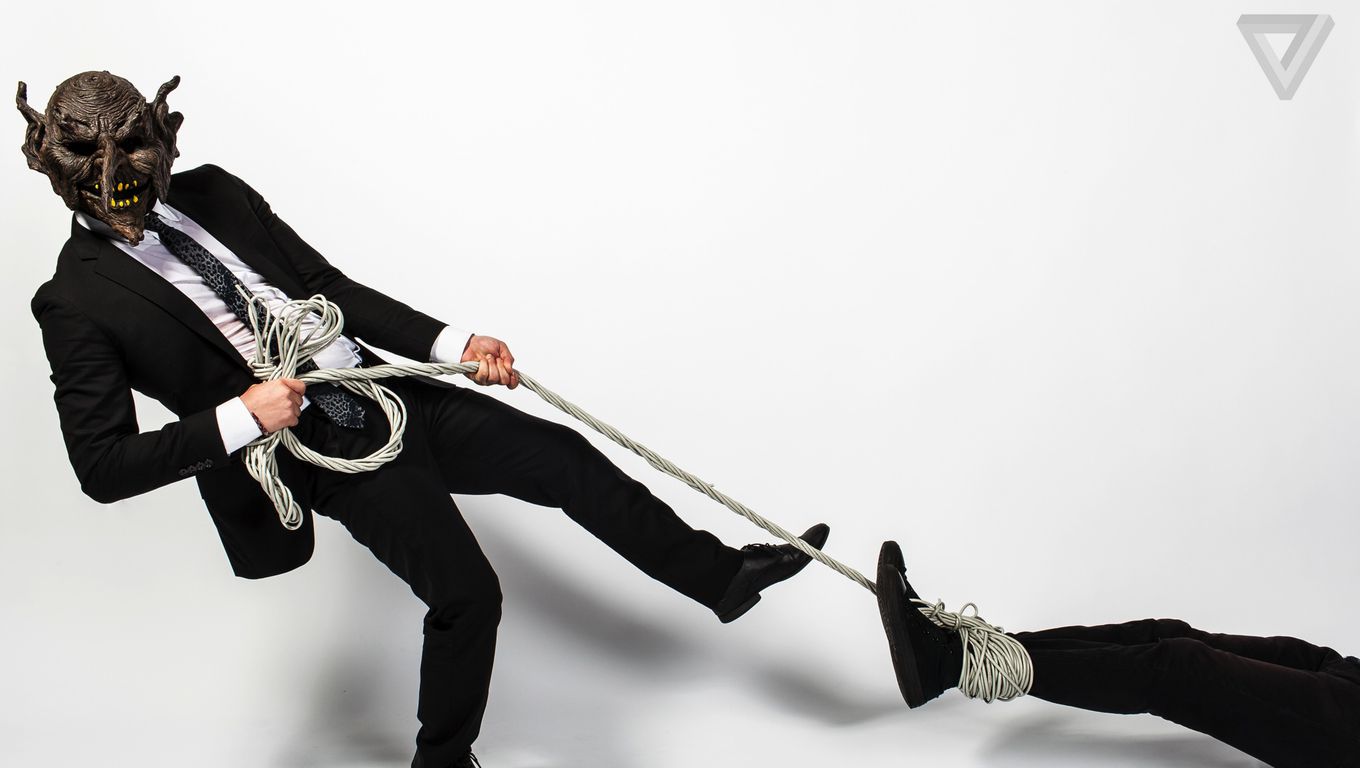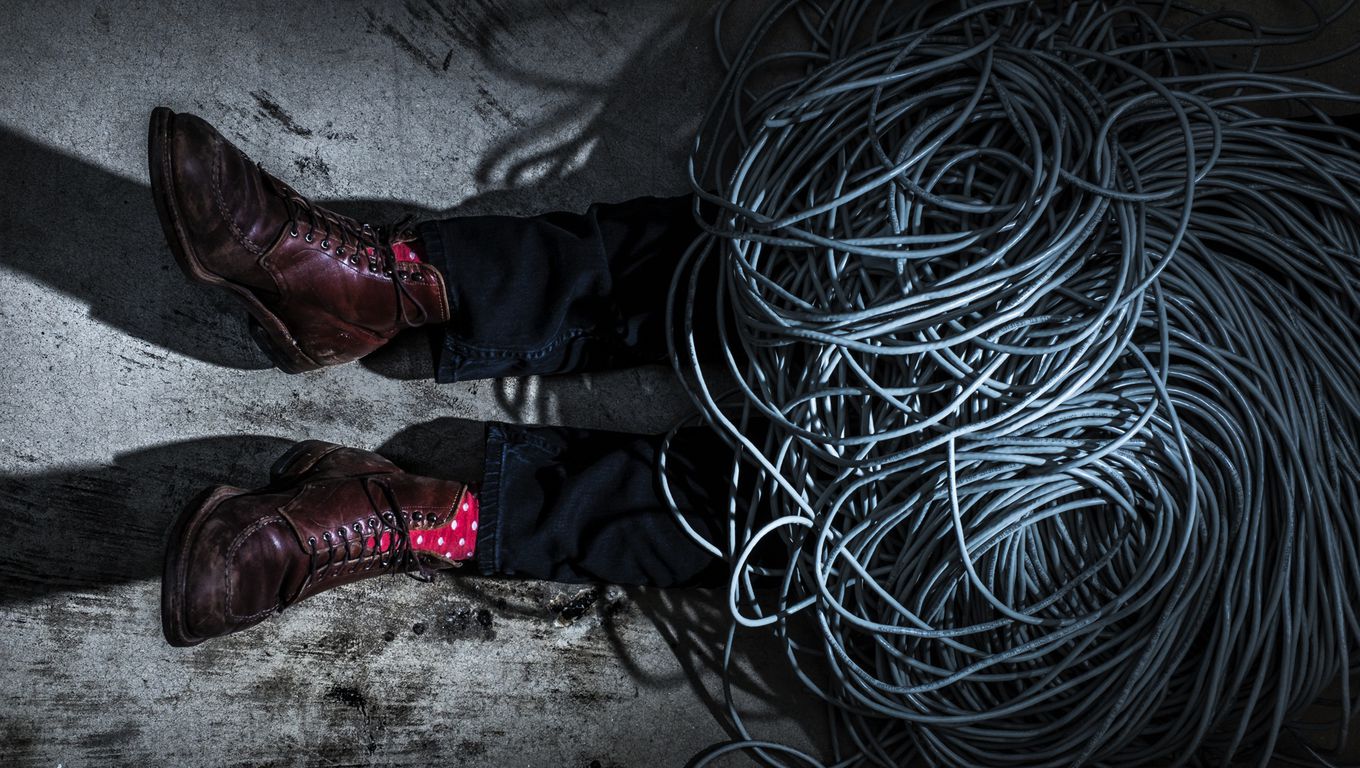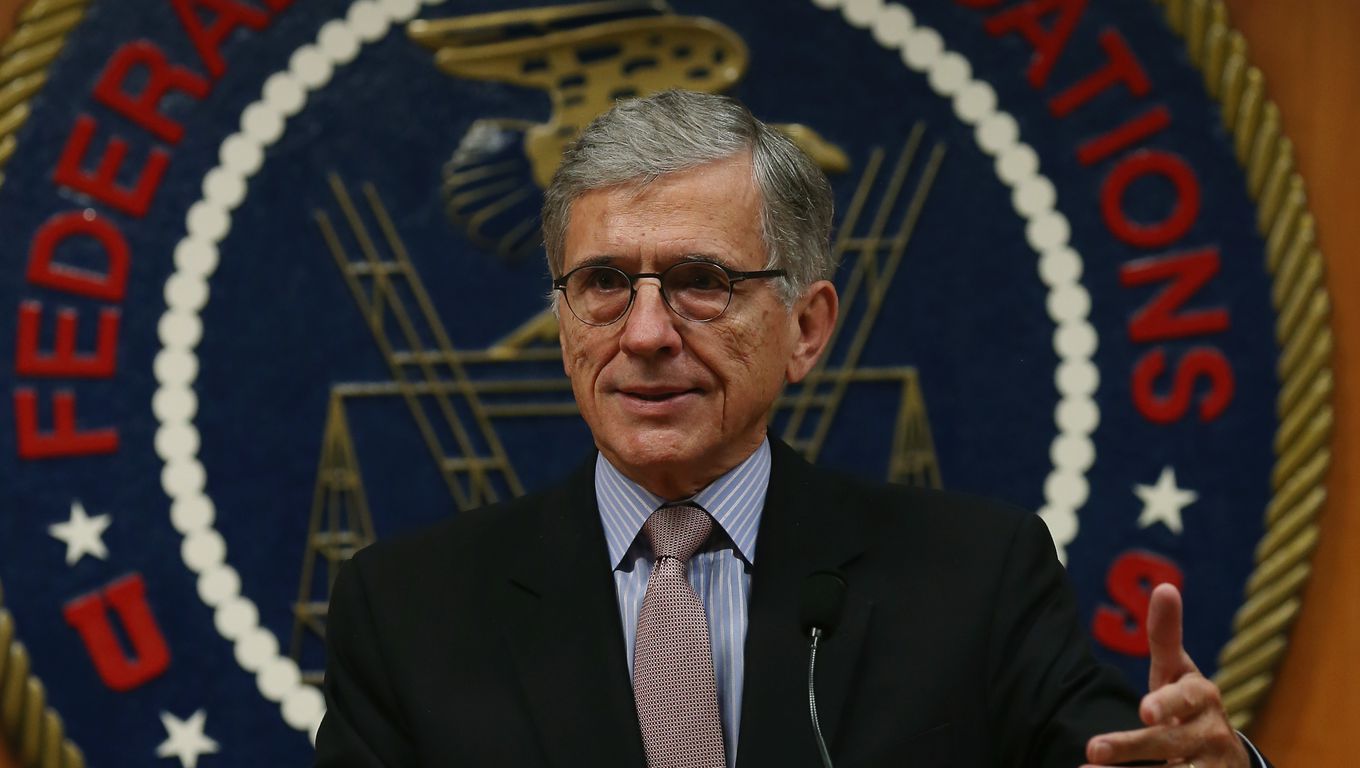One year ago today, Comcast announced a deal: it planned to merge with rival Time Warner Cable in a transaction worth north of $45 billion. The two cable giants could become one; federal regulators could approve the merger with a few swift stroke of their pens. "We believe that this transaction is approvable," Comcast CEO Brian Roberts said simply, as executives prophesied the deal would be done by the end of 2014.
And yet, we're still waiting. Nearly as quickly as the deal was announced, customer service horror stories about Comcast, always at a hum in discussions about the company, seemed to amplify. Writers, activists, and consumers all shared anecdotes online and with the FCC, testifying to why Comcast deserved the ignominious title "worst company in America." Less than subtle political machinations were uncovered. Tom Wheeler, former telecom lobbyist and FCC Chairman, was called a dingo during early talks on net neutrality, but suddenly, he's moving forward with Title II net neutrality rules while changing the definition of broadband.
The merger, once thought by some to be a fait accompli, might not be so assured. The ground beneath Comcast and Time Warner Cable shifted. It's not over just yet — the FCC will make a decision in the coming months — but here, briefly, is how things started going south for Comcast.
-
Why you should be scared of Comcast and Time Warner Cable merging
On the day of the announcement, skepticism was already setting in:
[W]ith the addition of Time Warner Cable, an emboldened Comcast will suddenly have a presence in every major media market in the United States, stretching from Los Angeles to New York City.
-
Comcast has very bad reasons for wanting to buy Time Warner Cable
Comcast made its case for the merger, but the numbers didn't add up:
There is absolutely no way that Comcast can argue it would have meaningful competition in wired broadband or cable after the merger. It’s impossible. Comcast was estimated to have about 20.7 million broadband subscribers and 21.7 million video subscribers at the end of 2013; Time Warner Cable counted about 11 million for both categories.
-
The worst company in America
More and more people, either inside Comcast or paying for service, came out with stories critical of the company:
In mid-July, AOL executive Ryan Block placed a call to Comcast customer service in an effort to cancel his service. What ensued was an 18-minute, Kafkaesque struggle with an overly persistent employee, which Block partially recorded and posted online. The recording went viral, and has now been listened to more than 5 million times.
-
Politicians are supporting Comcast's TWC merger with letters ghostwritten by Comcast
The spotlight started shining on Comcast, and it wasn't always pretty:
For instance, a letter sent to the FCC by a town councilman from the small community of Jupiter, Florida, was in fact largely orchestrated by some of the biggest players in corporate telecom.
-
Net Neutrality wins: the FCC will propose strong Title II regulation
The FCC continued to review the merger, but delays set in. Meanwhile, the commission decided to take a forceful regulatory stance on net neutrality, suggesting it's not as opposed to battling telecoms as once thought:
It's a striking victory for net neutrality advocates who have been fighting for years to solidify internet protections using Title II authority — and it's the first time the FCC has shown enough backbone to draw a line in the sand against companies like Comcast, AT&T, and Verizon, who are sure to fight viciously in courts to reverse this action.
/cdn.vox-cdn.com/uploads/chorus_image/image/71360998/comcast.0.1423868747.0.jpg)




